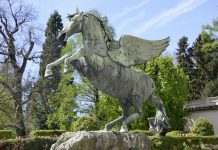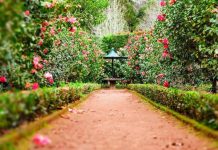An aquatic polyculture is a pond and garden that combines fish and edible plants. Species support each other in this traditional aquaculture system.
Imagine a garden that combines animals and plants working as a mutually beneficial whole to produce food. This is aquatic polyculture.
Table of Contents
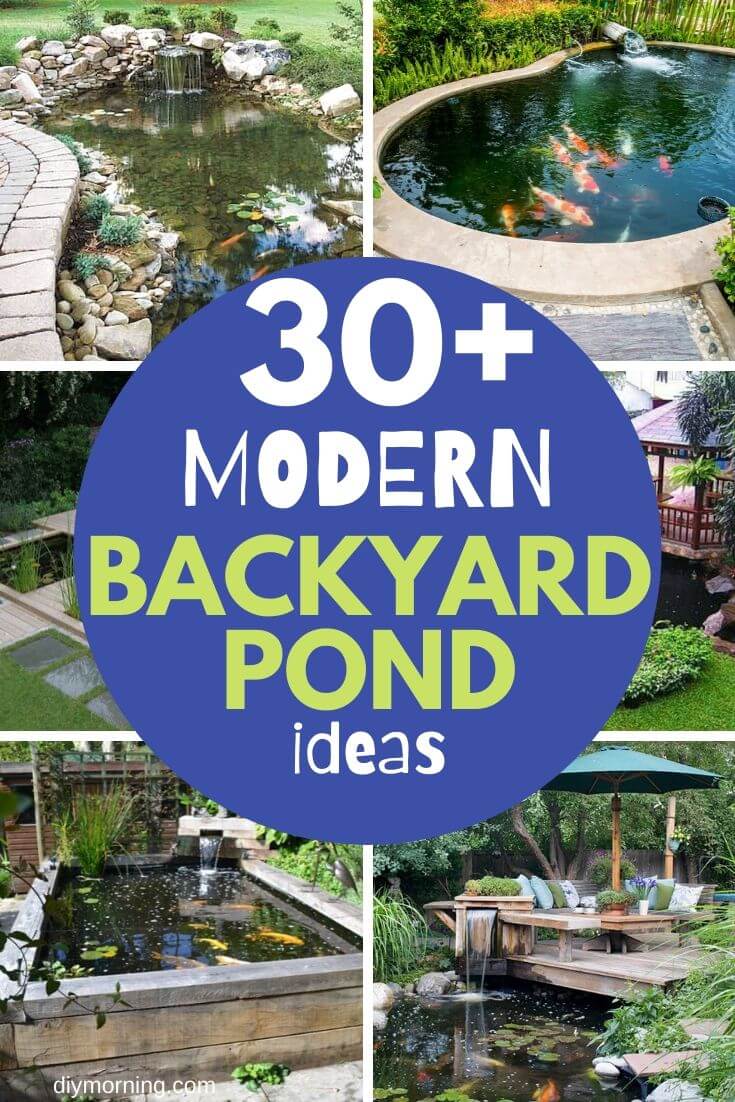
What is Aquatic Polyculture?
If gardening is culturing plants, polyculture is growing plants and animals together. Avid water gardeners often decide to place fish in a pond to add life, interest, and color to the garden.
Enthusiastic practitioners of aquaculture may even decide to create or stock a small pond on their property, filling it with food fish.
Instead of focusing on one plant species or one food crop, a polyculture creates an ecosystem on the farm or garden. The fish waste feeds the plants, while the plants help feed the fish.
Why Use Fish in a Water Garden?
Fish are a beautiful and useful addition to a water garden. They are excellent predators and eat insects that can damage garden crops. Fish also eat biting insects such as mosquitoes. Waste from a fish provides fertilizer for plants in and around a pond. Fish such as trout and carp are also a ready source of protein in many cultures.
Traditional Ways of Raising Fish and Food Crops
In a traditional polyculture, farmers raise edible fish and edible aquatic or wetland plants together. The fish provide waste that helps fertilize the wetland plants, while the plants provide hiding places and food for the fish.
Polyculture is the main aquaculture system in Asia. It is an efficient and effective method of raising fish, because the land is also used for growing food crops. In the traditional Chinese system of polyculture, fish ponds are stocked with different species of young fish. These fish prefer different foods, and stocking with different fish maximizes fish production. Carp is the major fish produced in this system.
The Carp is an Ideal Fish for Small Scale Aquaculture
The carp is making inroads as a food fish in other cultures as well. In an October 2008 issue of the UK’s Telegraph newspaper, Vicky Liddell interviewed Jimmie and Penny Hepburn, fish farmers who farm carp. They see the carp as the aquatic equivalent of the backyard chicken. They are fairly easy to manage, a good source of protein, and they eat almost anything. Carp are a good choice for a smaller scale pond. They thrive in muddy waters, and they require less maintenance and food than other fish species.
Edible Plants for the Backyard Pond
A polyculture includes both plants and animals. While edible wetland plants can be difficult to source, choices like wild rice, watercress, and cranberries make exciting additions to a home food garden. When choosing species for the area surrounding the pond, be aware that many wetland plants easily become invasive. Choose wisely!
Potential Troubles in the Backyard Pond
Intensive aquatic food systems need to be closely watched, especially if they are quite small. Placing too many fish in a pond without adequate filters and aeration can lead to poor water quality, which can harm both fish and plants. Experiment with a small number of fish to find the right balance for the home pond.
30+ Modern backyard pond ideas
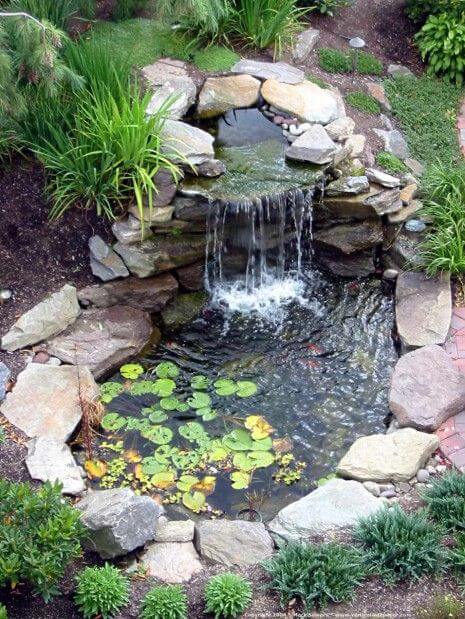
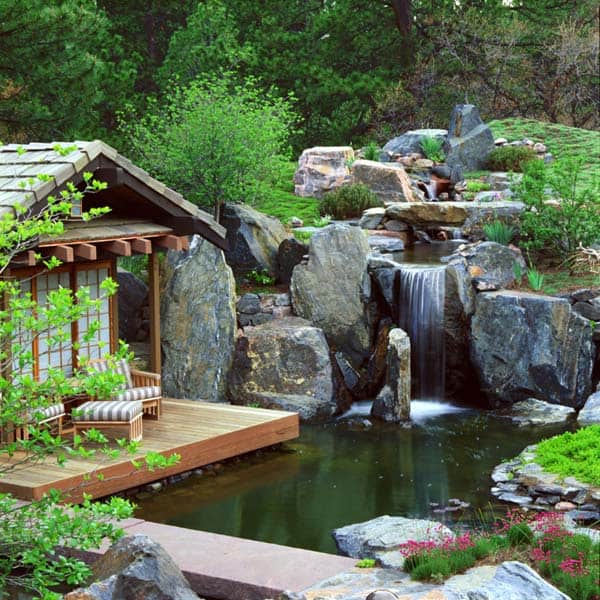
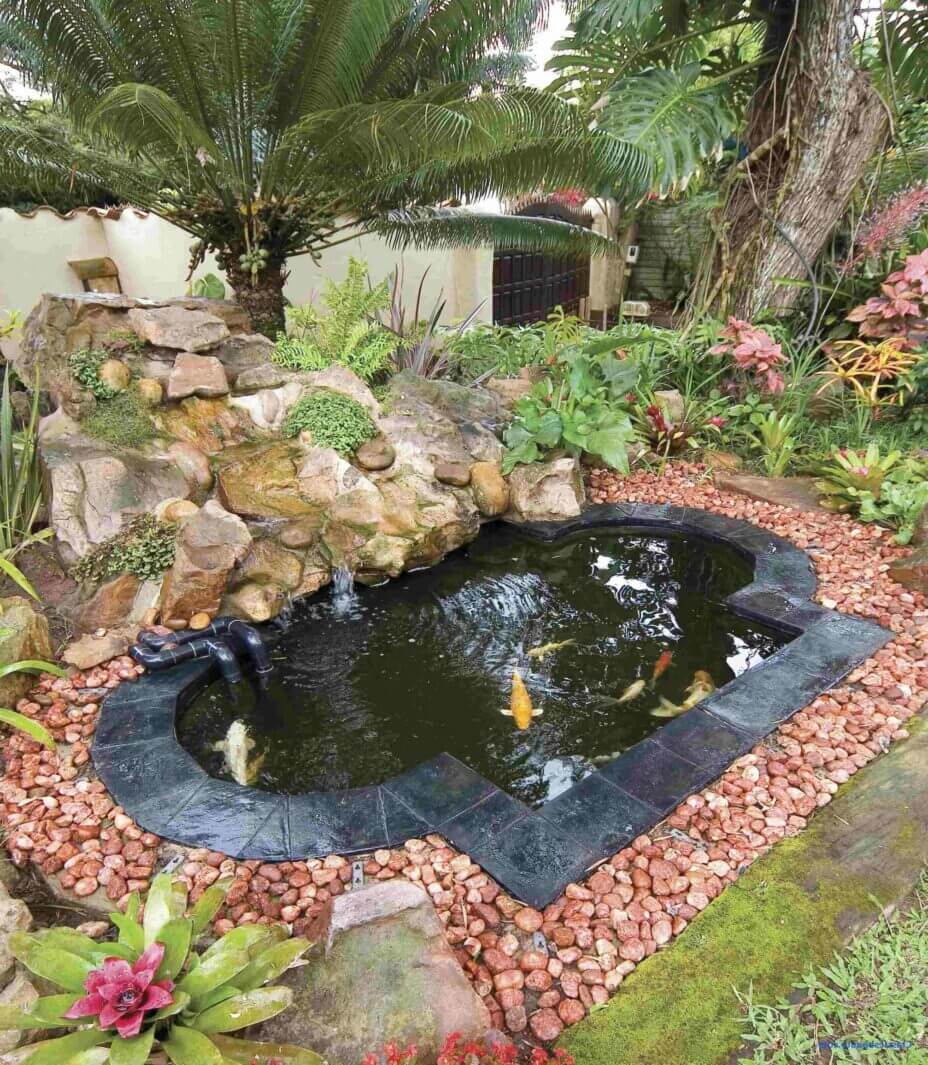
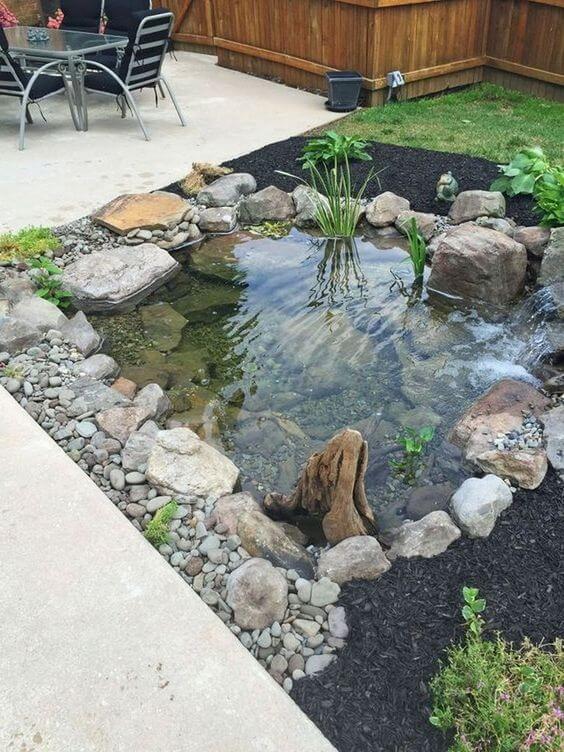
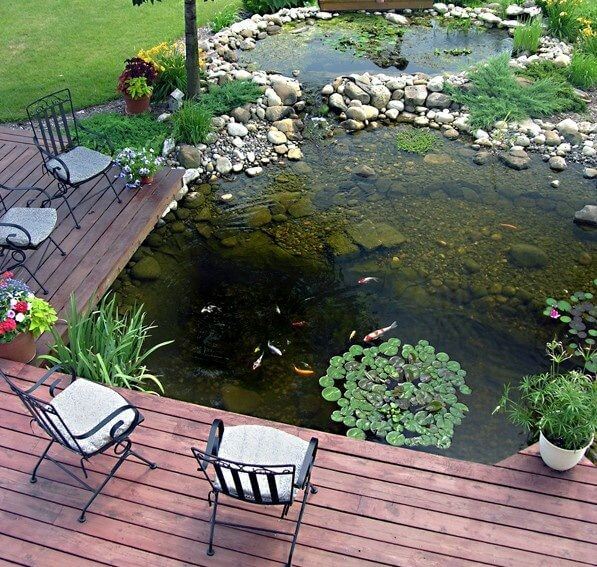
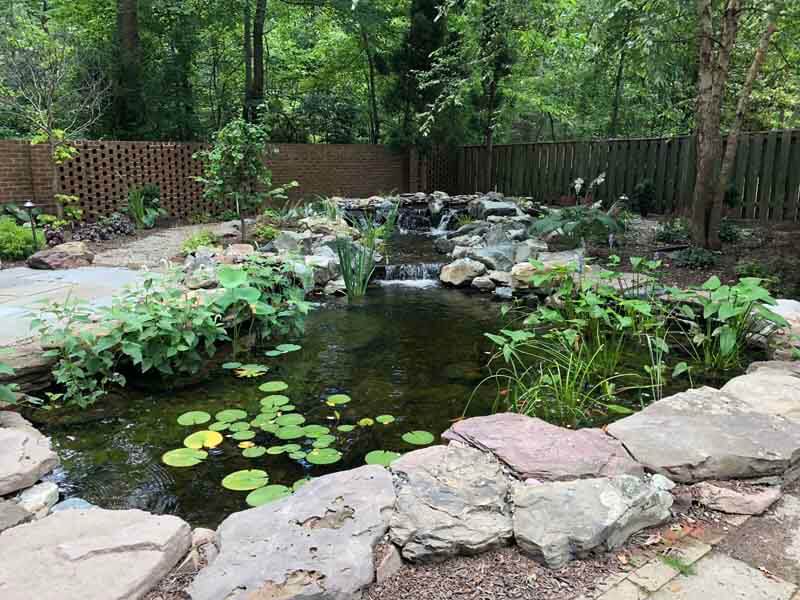
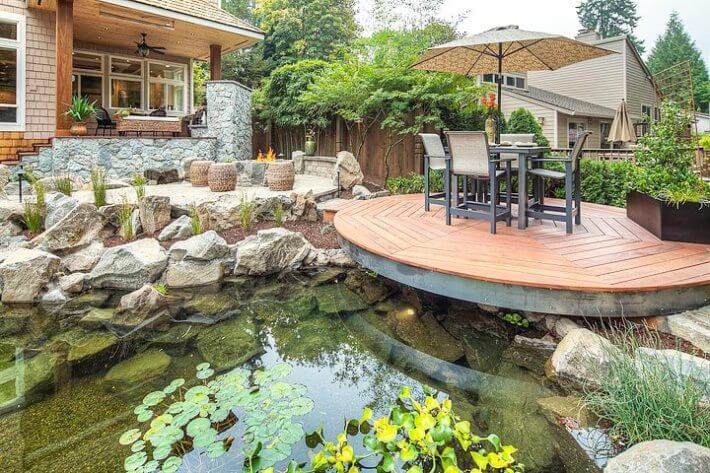
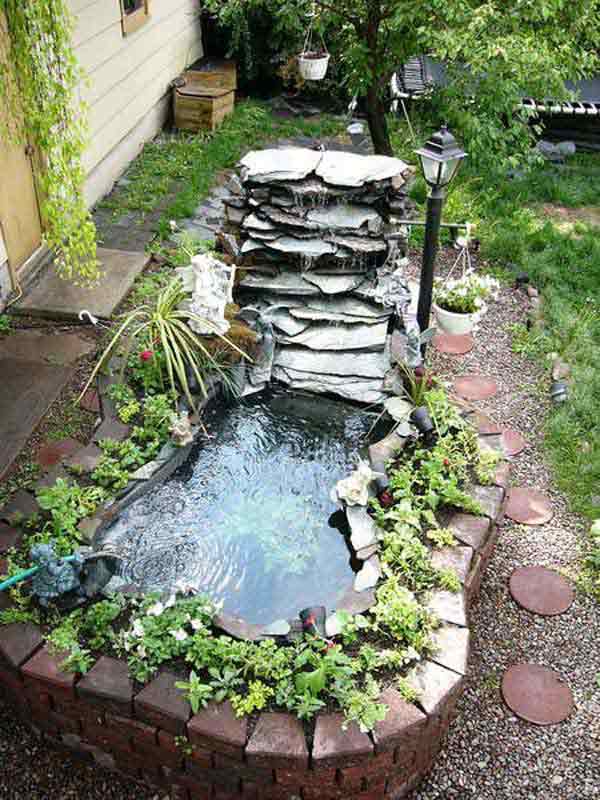
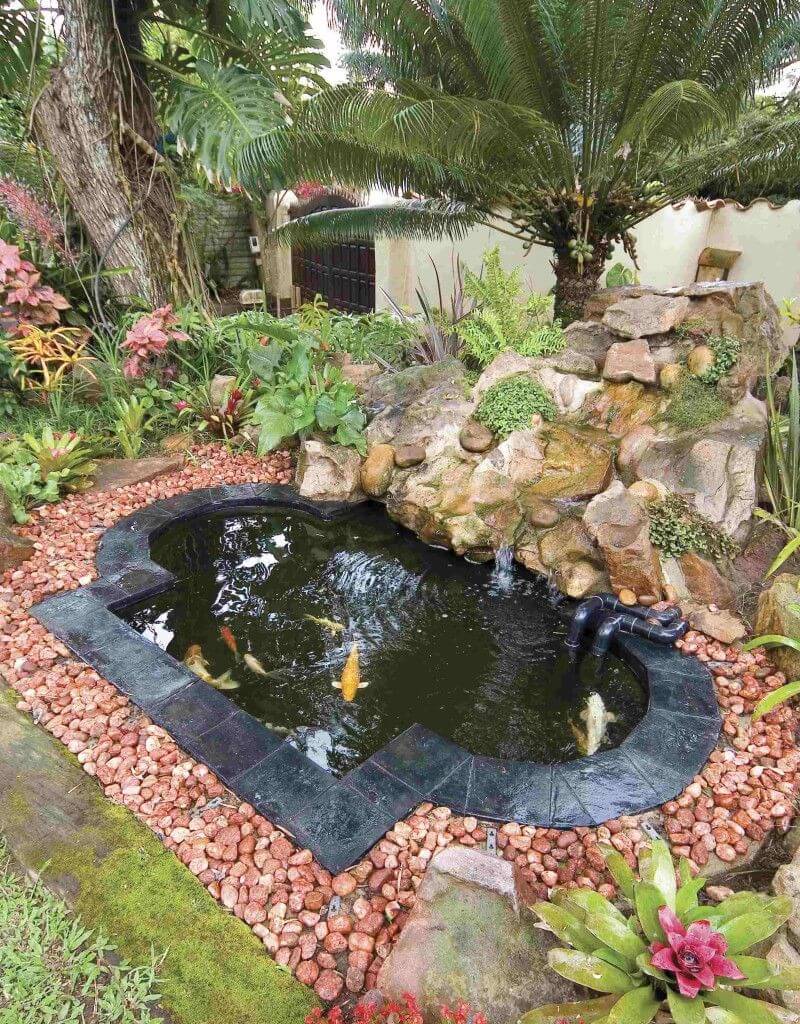
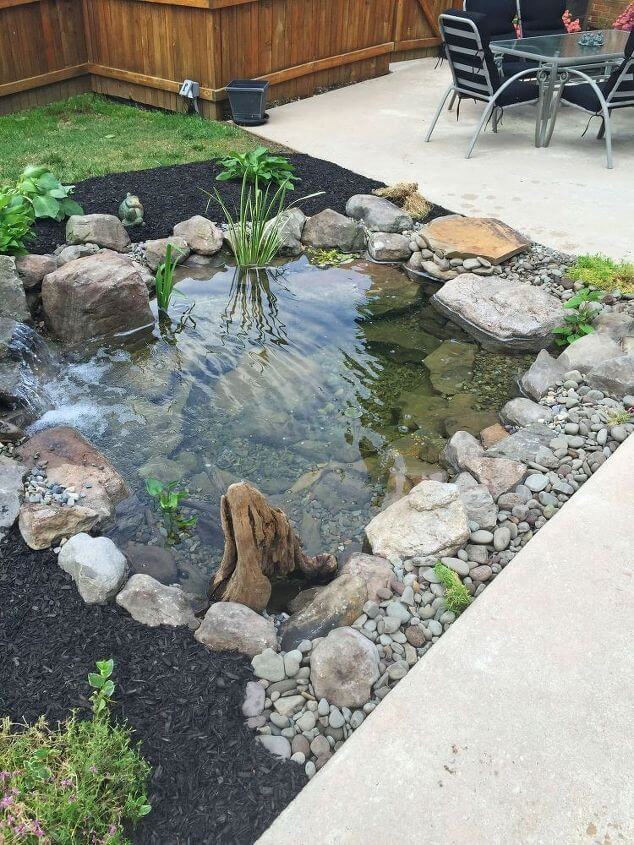
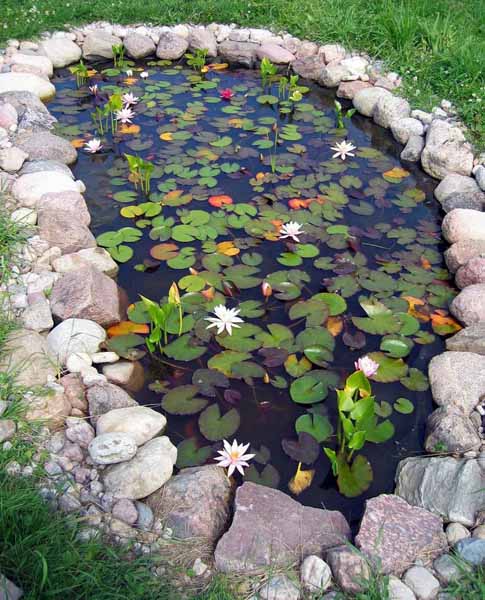
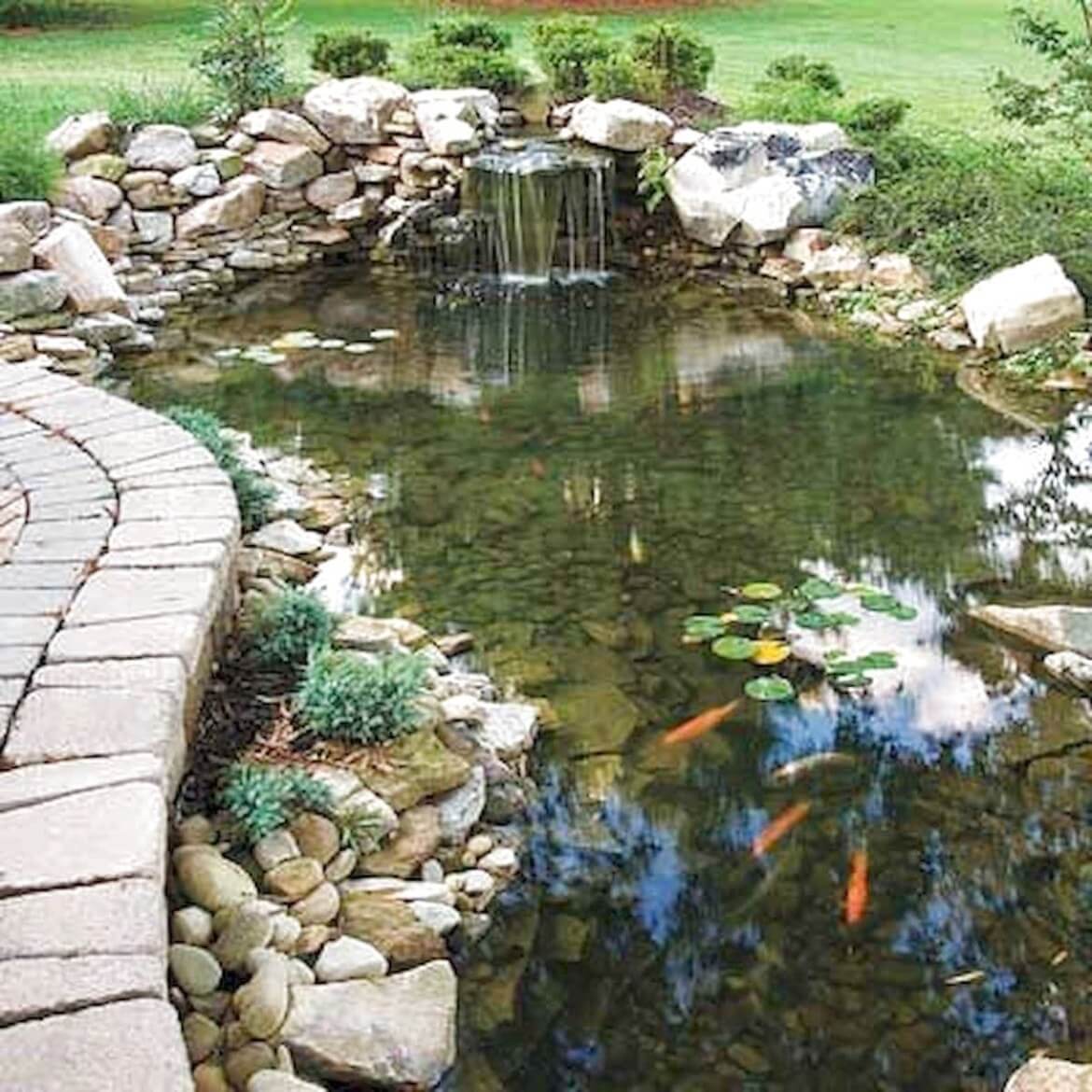
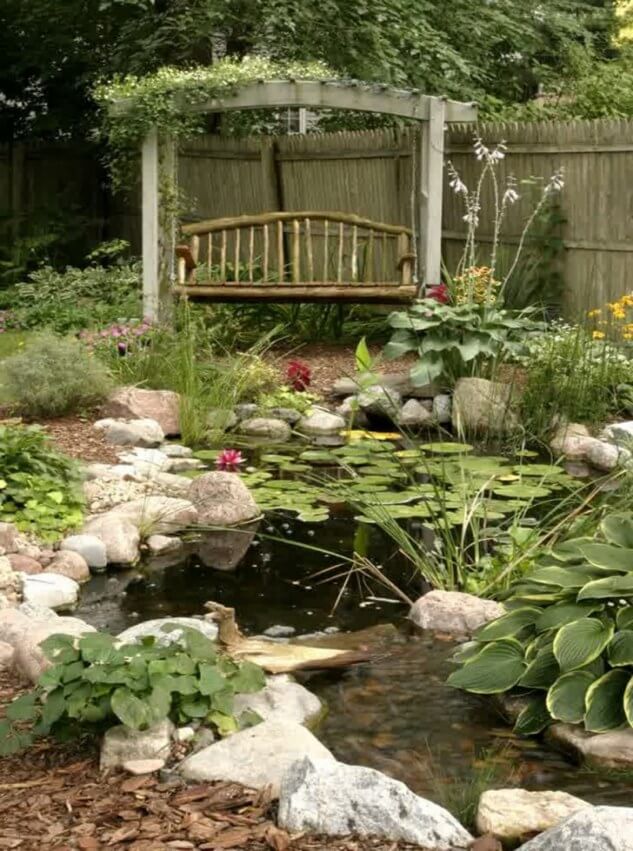
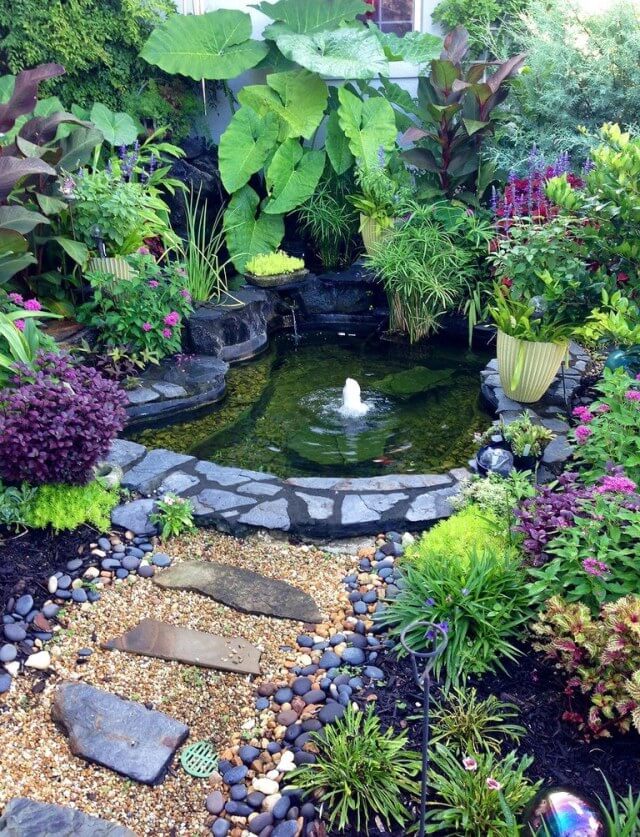
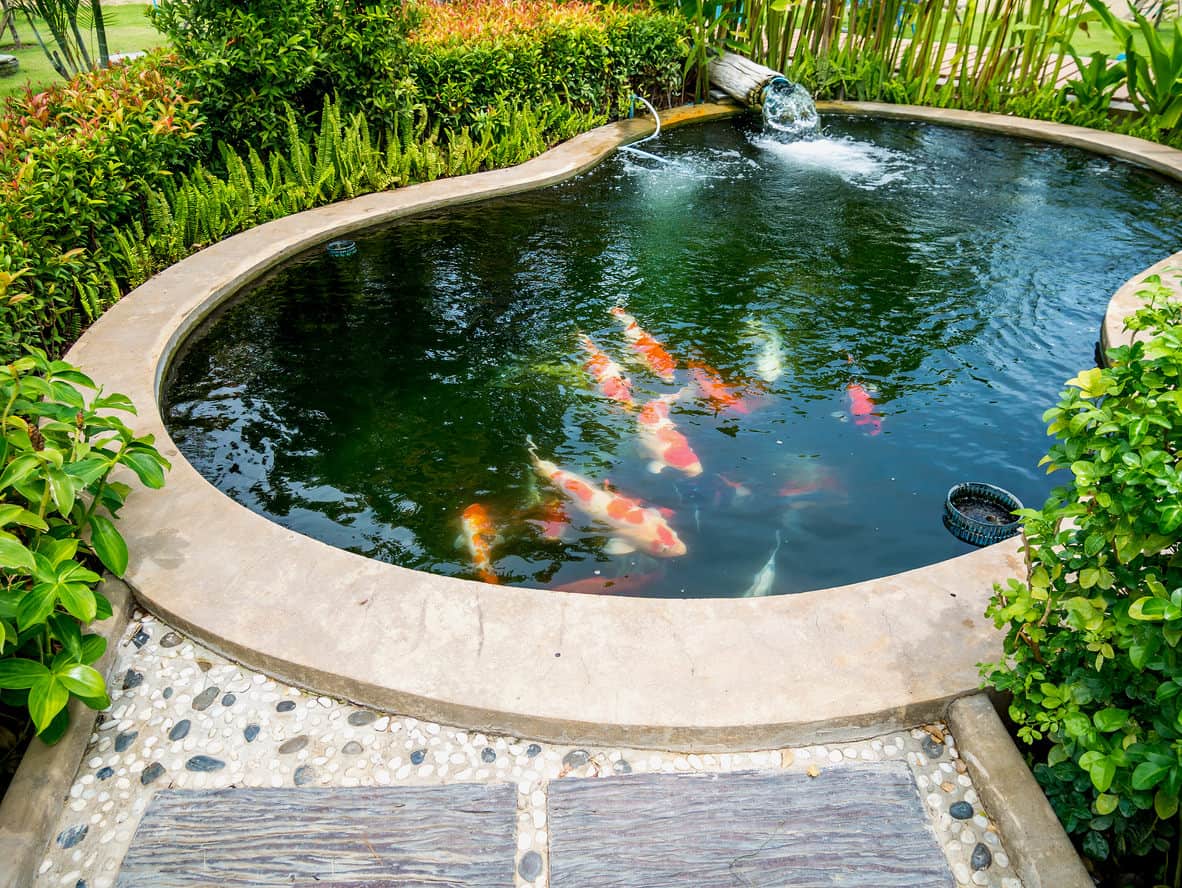
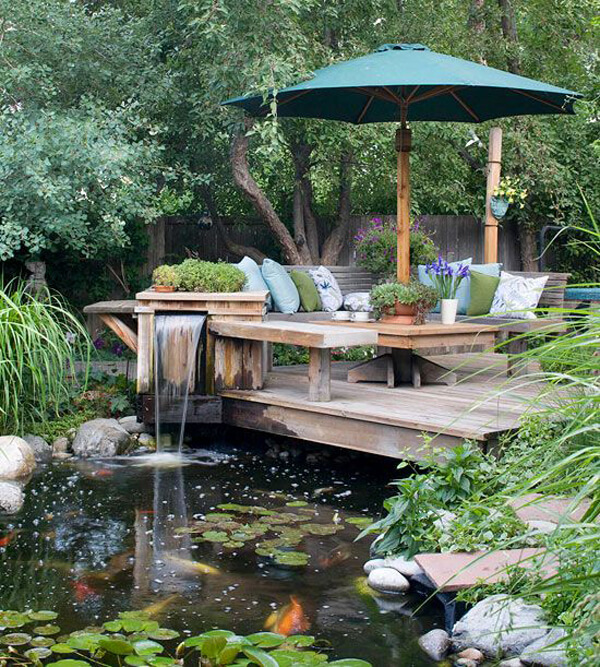
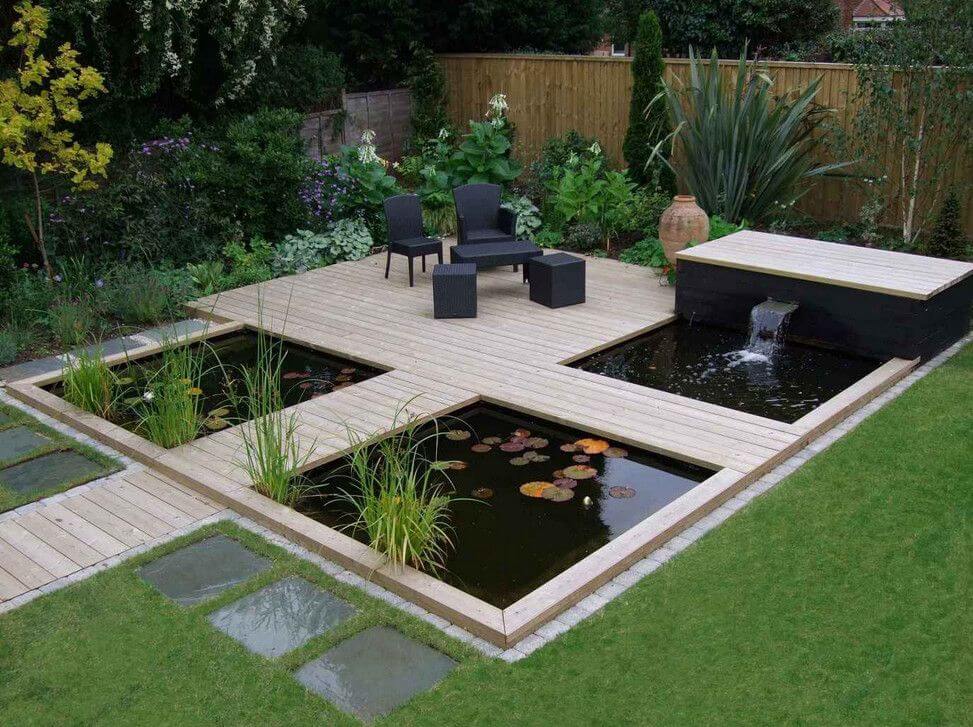
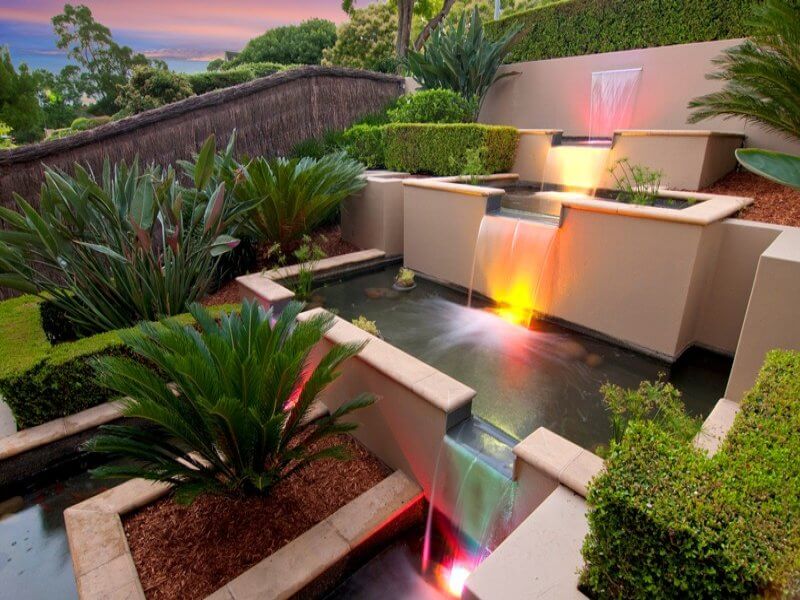
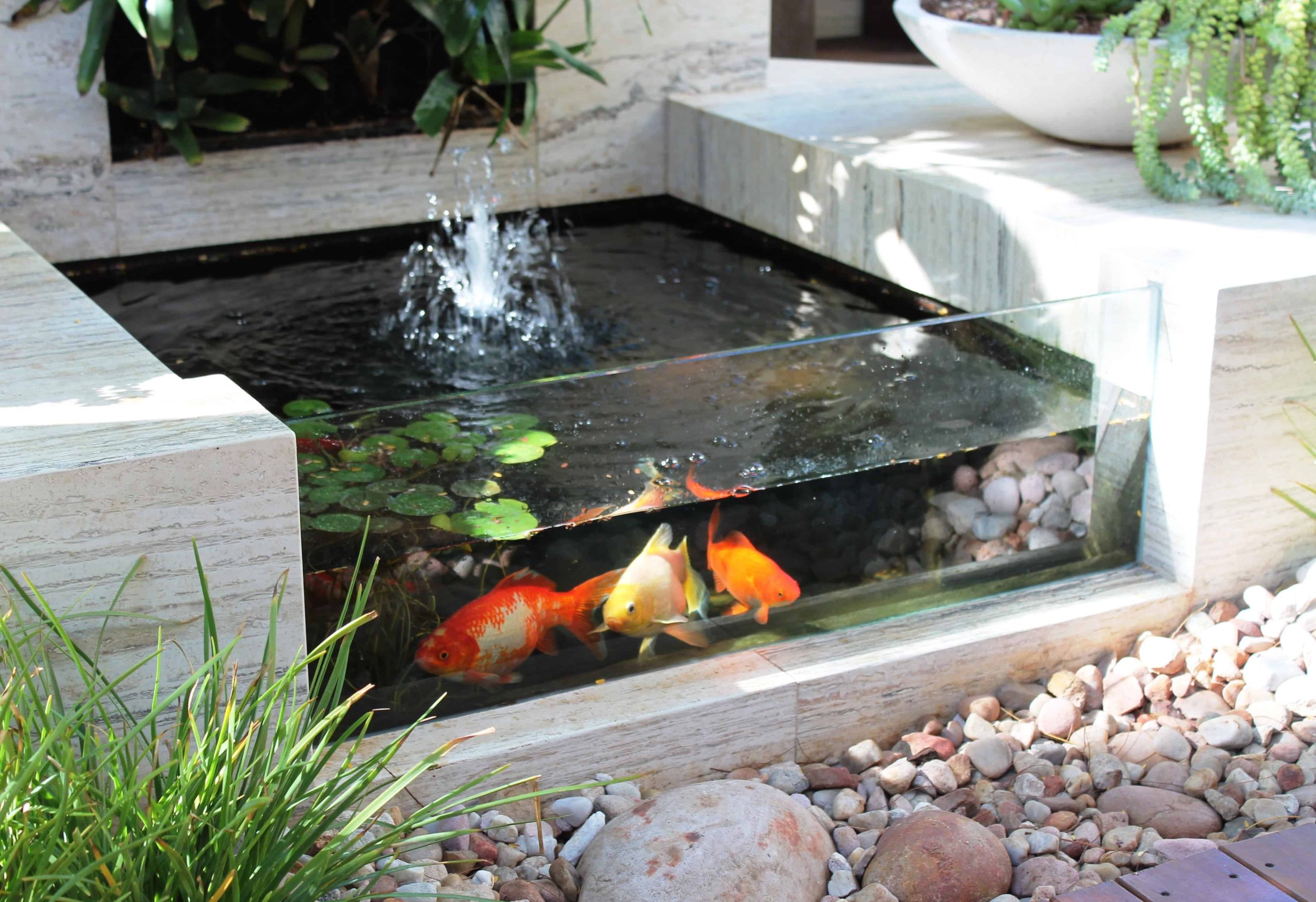
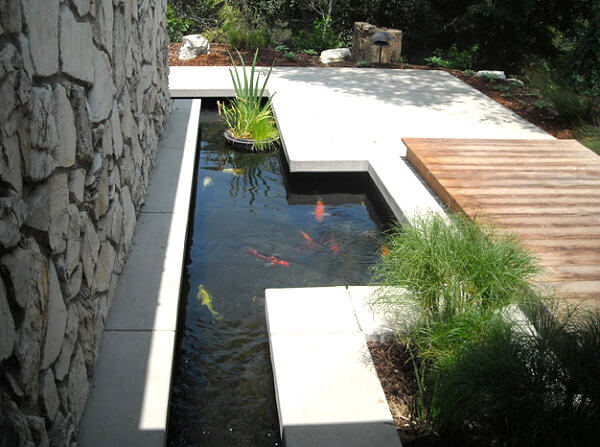
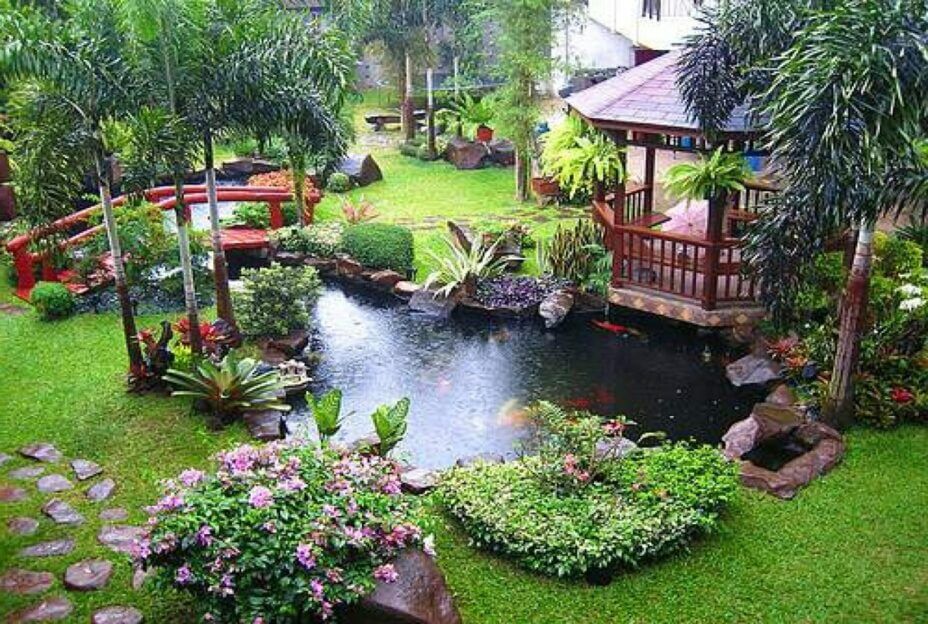
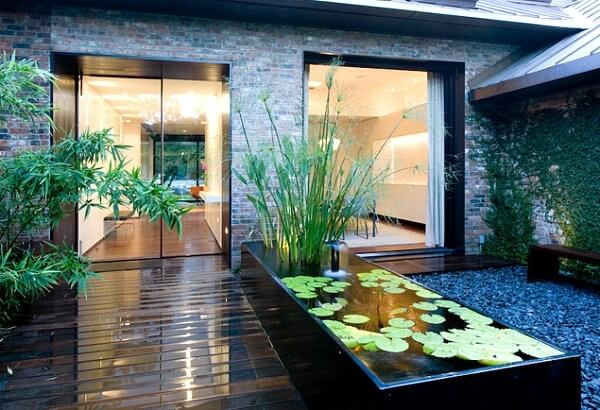
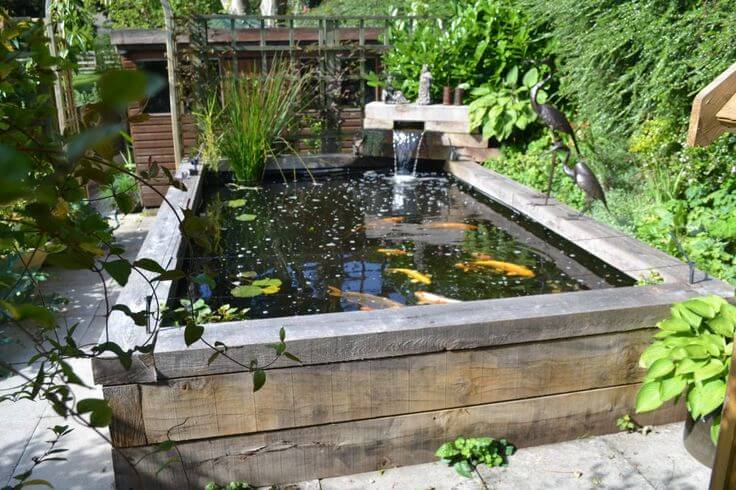
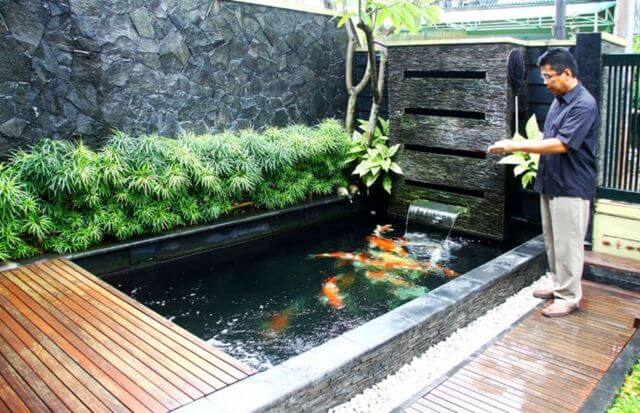
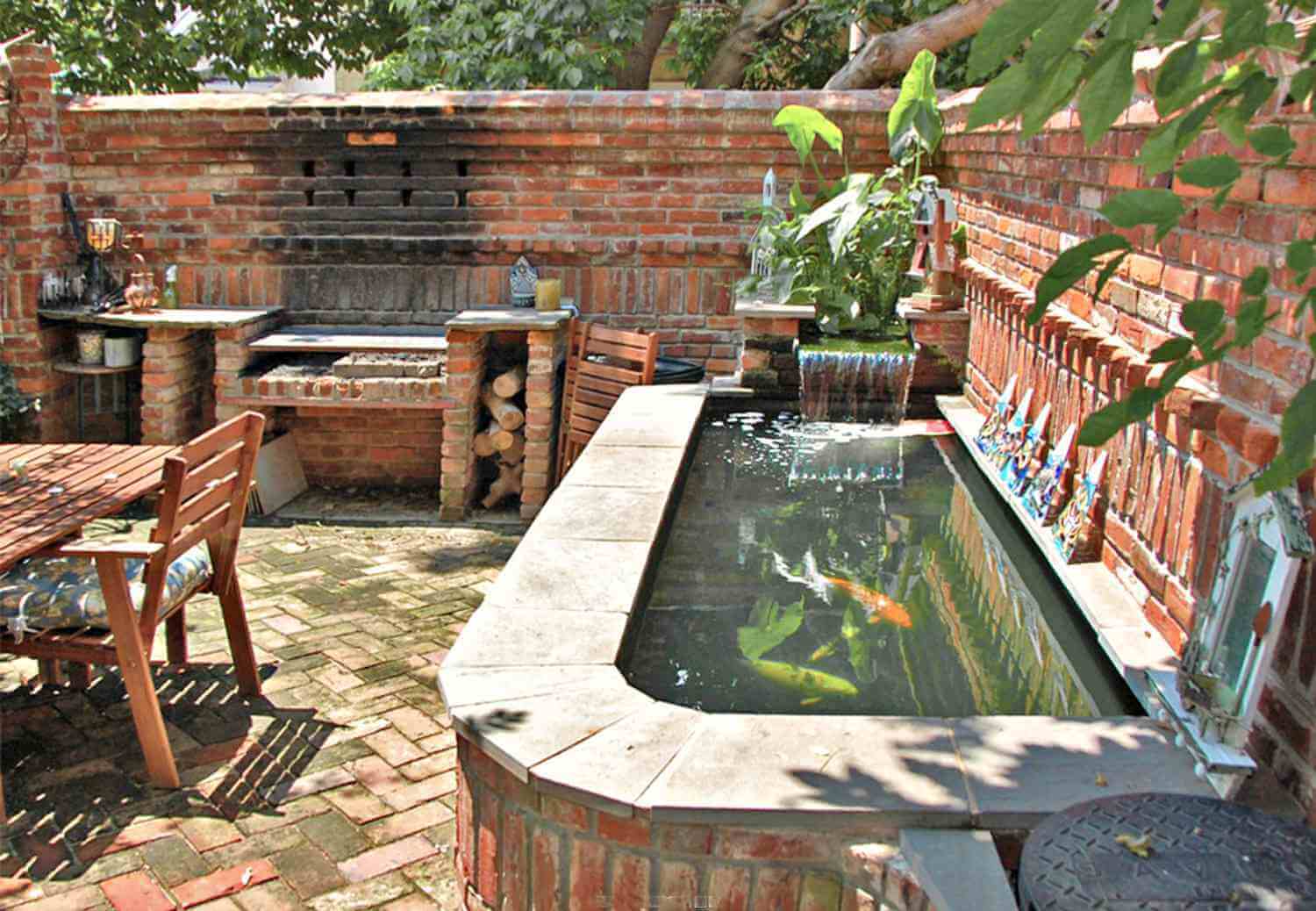
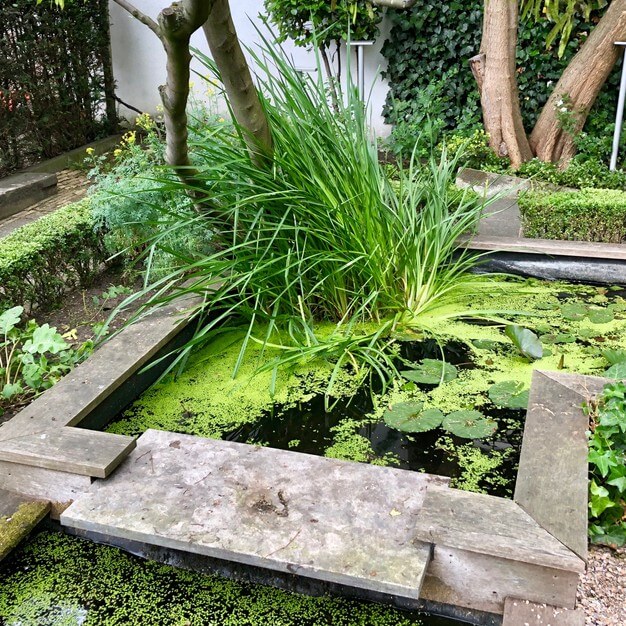
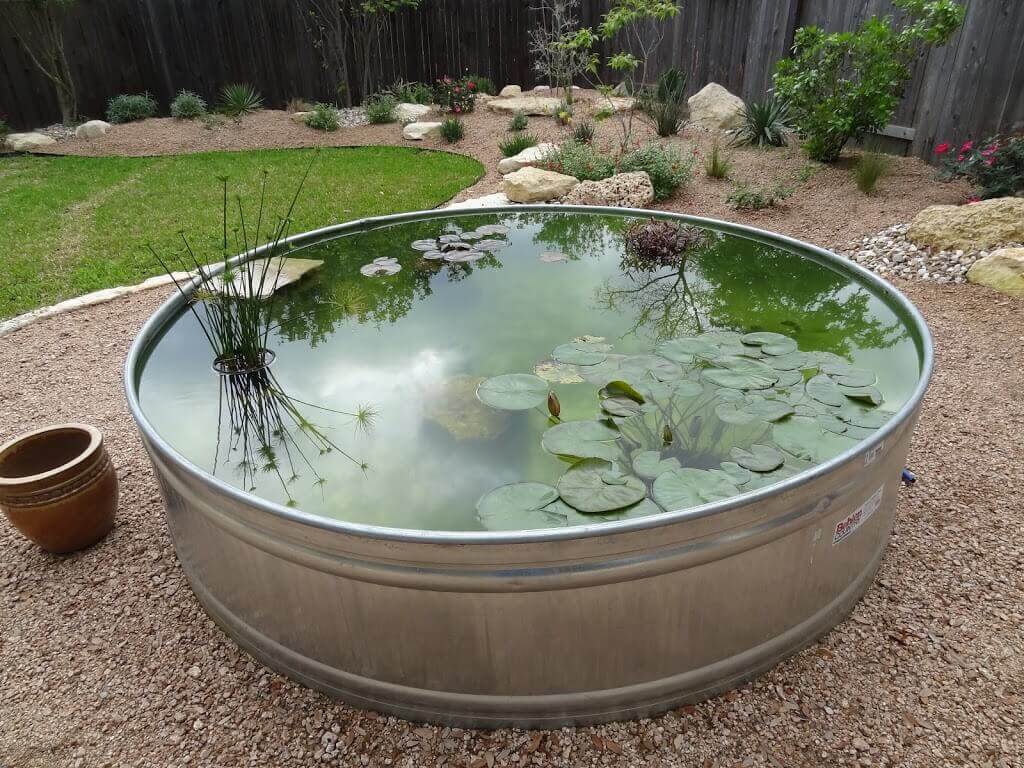
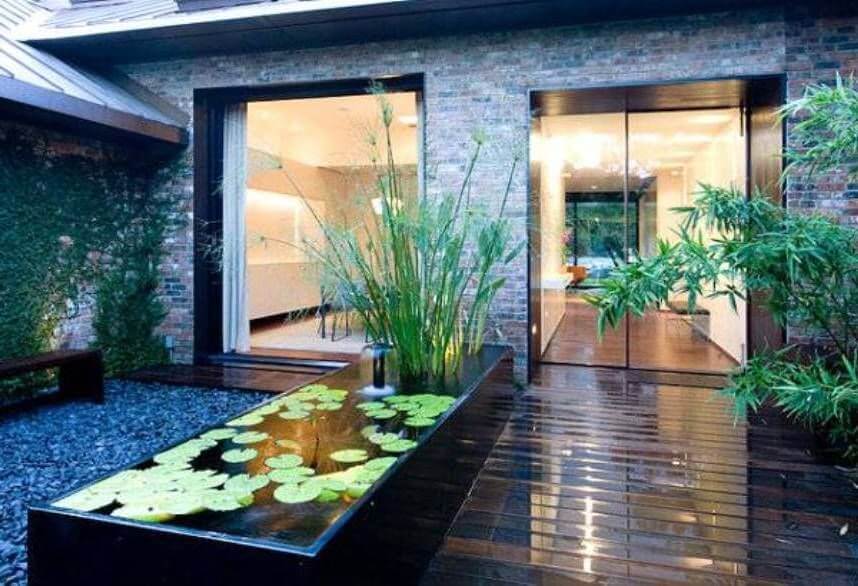
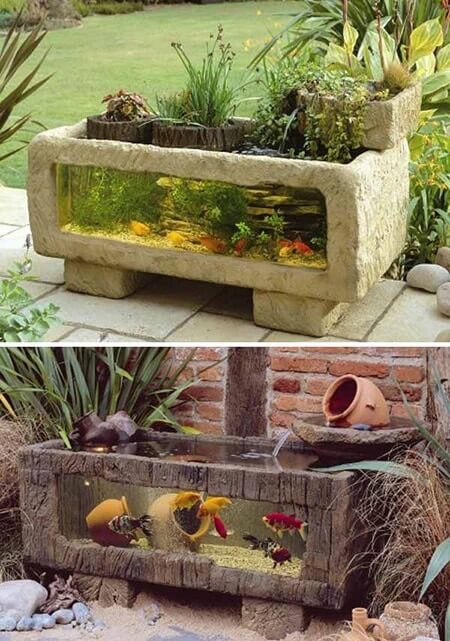
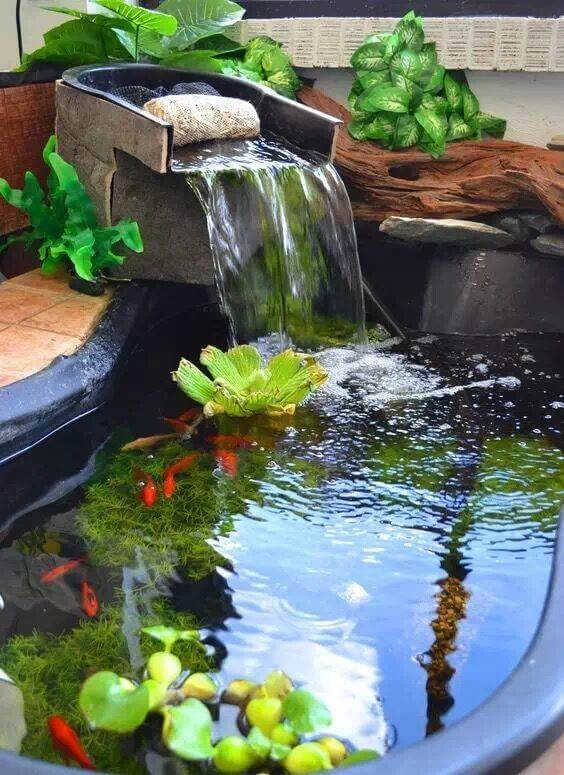
Aquatic farming that combines plants and fish is a traditional method of gardening that is making a comeback. As people become more concerned about sourcing local food and creating food security, the need to find local sources of protein could transform the backyard pond into a small aquaculture.



